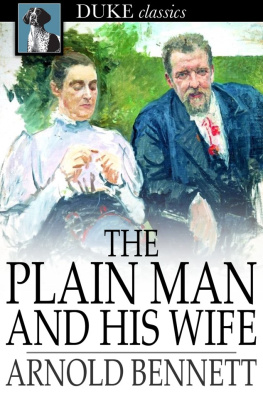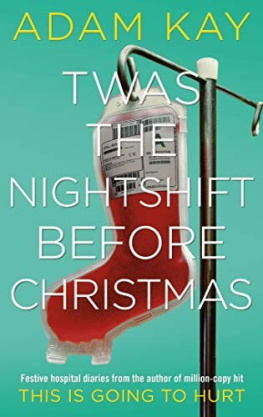Arnold Bennett - Lo! 'Twas a Gala Night!
Here you can read online Arnold Bennett - Lo! 'Twas a Gala Night! full text of the book (entire story) in english for free. Download pdf and epub, get meaning, cover and reviews about this ebook. genre: Detective and thriller. Description of the work, (preface) as well as reviews are available. Best literature library LitArk.com created for fans of good reading and offers a wide selection of genres:
Romance novel
Science fiction
Adventure
Detective
Science
History
Home and family
Prose
Art
Politics
Computer
Non-fiction
Religion
Business
Children
Humor
Choose a favorite category and find really read worthwhile books. Enjoy immersion in the world of imagination, feel the emotions of the characters or learn something new for yourself, make an fascinating discovery.

- Book:Lo! 'Twas a Gala Night!
- Author:
- Genre:
- Rating:3 / 5
- Favourites:Add to favourites
- Your mark:
- 60
- 1
- 2
- 3
- 4
- 5
Lo! 'Twas a Gala Night!: summary, description and annotation
We offer to read an annotation, description, summary or preface (depends on what the author of the book "Lo! 'Twas a Gala Night!" wrote himself). If you haven't found the necessary information about the book — write in the comments, we will try to find it.
Lo! 'Twas a Gala Night! — read online for free the complete book (whole text) full work
Below is the text of the book, divided by pages. System saving the place of the last page read, allows you to conveniently read the book "Lo! 'Twas a Gala Night!" online for free, without having to search again every time where you left off. Put a bookmark, and you can go to the page where you finished reading at any time.
Font size:
Interval:
Bookmark:
Lo! 'Twas a Gala Night! by ARNOLD BENNETT
I
PARIS. And not merely Paris, but Paris en fte, Paris decorated, Paris idle, Paris determined to enjoy itself, and succeeding brilliantly. Venetian masts of red and gold lined the gay pavements of the grands boulevarde and the Avenue de l'Opra; and suspended from these in every direction, transverse and lateral, hung garlands of flowers whose petals were of coloured paper, and whose hearts were electric globes that in the evening would burst into flame. The effect of the city's toilette reached the extreme of opulence, for no expense had been spared. Paris was welcoming monarchs, and had spent two million francs in obedience to the maxim that what is worth doing at all is worth doing well.
The Grand Hotel, with its eight hundred rooms full of English and Americans, at the upper end of the Avenue de l'Opra, looked down at the Grand Hotel du Louvre, with its four hundred rooms full of English and Americans, at the lower end of the Avenue de l'Opra. These two establishments had the best views in the whole city; and perhaps the finest view of all was that obtainable from a certain second floor window of the Grand Hotel, precisely at the corner of the Boulevard des Capucines and the Rue Auber. From this window one could see the boulevards in both directions, the Opra, the Place de l'Opra, the Avenue de l'Opra, the Rue du Quatre Septembre, and the multitudinous life of the vivid thoroughfares the glittering cafs, the dazzling shops, the painted kiosks, the lumbering omnibuses, the gliding trams, the hooting automobiles, the swift and careless cabs, the private carriages, the suicidal bicycles, the newsmen, the toysellers, the touts, the beggars, and all the holiday crowd, sombre men and radiant women, chattering, laughing, bustling, staring, drinking, under the innumerable tricolours and garlands of paper flowers.
That particular view was a millionaire's view, and it happened to be the temporary property of Cecil Thorold, who was enjoying it and the afternoon sun at the open window, with three companions. Eve Fincastle looked at it with the analytic eye of the journalist, while Kitty Sartorius, as was quite proper for an actress, deemed it a sort of frame for herself, as she leaned over the balcony like a Juliet on the stage. The third guest in Cecil's sitting-room was Lionel Belmont, the Napoleonic Anglo-American theatrical manager, in whose crown Kitty herself was the chief star. Mr. Belmont, a big, burly, good-humoured, shrewd man of something over forty, said he had come to Paris on business. But for two days the business had been solely to look after Kitty Sartorius and minister to her caprices. At the present moment his share of the view consisted mainly of Kitty; in the same way Cecil's share of the view consisted mainly of Eve Fincastle; but this at least was right and decorous, for the betrothal of the millionaire and the journalist had been definitely announced. Otherwise Eve would have been back at work in Fleet Street a week ago.
"The gala performance is to-night, isn't it?" said Eve, gazing at the vast and superbly ornamented Opera House.
"Yes," said Cecil.
"What a pity we can't be there! I should so have liked to see the young Queen in evening dress. And they say the interior decorations "
"Nothing simpler," said Cecil. "If you want to go, dear, let us go."
Kitty Sartorius looked round quickly. "Mr. Belmont has tried to get seats, and can't. Haven't you, Bel? You know the whole audience is invited. The invitations are issued by the Minister of Fine Arts."
"Still, in Paris, anything can be got by paying for it," Cecil insisted.
"My dear young friend," said Lionel Belmont, "I guess if seats were to be had, I should have struck one or two yesterday. I put no limit on the price, and I reckon I ought to know what theatre prices run to. Over at the Metropolitan in New York I've seen a box change hands at two thousand dollars, for one night."
"Nevertheless " Cecil began again.
"And the performance starting in six hours from now!" Lionel Belmont exclaimed. "Not much!"
But Cecil persisted.
"Seen the Herald to-day?" Belmont questioned. "No? Well, listen. This will interest you." He drew a paper from his pocket and read: "Seats for the Opra Gala. The traffic in seats for the gala performance at the Opra during the last Royal Visit to Paris aroused considerable comment and not a little dissatisfaction. Nothing, however, was done, and the traffic in seats for to-night's spectacle, at which the President and their Imperial Majesties will be present, has, it is said, amounted to a scandal. Of course, the offer so suddenly made, five days ago, by Madame Flise and Mademoiselle Malva, the two greatest living dramatic sopranos, to take part in the performance, immediately and enormously intensified interest in the affair, for never yet have these two supreme artists appeared in the same theatre on the same night. No theatre could afford the luxury. Our readers may remember that in our columns and in the columns of the Figaro there appeared four days ago an advertisement to the following effect: 'A box, also two orchestra stalls, for the Opra Gala, to be disposed of, owing to illness. Apply, 155, Rue de la Paix.' We sent four several reporters to answer that advertisement. The first was offered a stage-box for seven thousand five hundred francs, and two orchestra stalls in the second row for twelve hundred and fifty francs. The second was offered a box opposite the stage on the second tier, and two stalls in the seventh row. The third had the chance of four stalls in the back row and a small box just behind them; the fourth was offered something else. The thing was obviously, therefore, a regular agency. Everybody is asking: 'How were these seats obtained? From the Ministry of Fine Arts, or from the invits?' Echo answers 'How?' The authorities, however, are stated to have interfered at last, and to have put an end to this buying and selling of what should be an honourable distinction."
"Bravo!" said Cecil.
"And that's so!" Belmont remarked, dropping the paper. "I went to 155, Rue de la Paix myself yesterday, and was told that nothing whatever was to be had, not at any price."
"Perhaps you didn't offer enough," said Cecil.
"Moreover, I notice the advertisement does not appear to-day. I guess the authorities have crumpled it up."
"Still " Cecil went on monotonously.
"Look here," said Belmont, grim and a little nettled. "Just to cut it short, I'll bet you a two-hundred-dollar dinner at Paillard's that you can't get seats for to-night not even two, let alone four."
"You really want to bet?"
"Well," drawled Belmont, with a certain irony, slightly imitating Cecil's manner, "it means something to eat for these ladies."
"I accept," said Cecil. And he rang the bell.
II.
"Lecky," Cecil said to his valet, who had entered the room, "I want you to go to No. 155, Rue de la Paix, and find out on which floor they are disposing of seats for the Opra to-night. When you have found out, I want you to get me four seats preferably a box. Understand?"
The servant stared at his master, squinting violently for a few seconds. Then he replied suddenly, as though light had just dawned on him. "Exactly, sir. You intend to be present at the gala performance?"
"You have successfully grasped my intention," said Cecil. "Present my card." He scribbled a word or two on a card and gave it to the man.
"And the price, sir?"
"You still have that blank cheque on the Crdit Lyonnais that I gave you yesterday morning. Use that."
"Yes, sir. Then there is the question of my French, sir, my feeble French a delicate plant."
"My friend," Belmont put in. "I will accompany you as interpreter. I should like to see this thing through."
Next pageFont size:
Interval:
Bookmark:
Similar books «Lo! 'Twas a Gala Night!»
Look at similar books to Lo! 'Twas a Gala Night!. We have selected literature similar in name and meaning in the hope of providing readers with more options to find new, interesting, not yet read works.
Discussion, reviews of the book Lo! 'Twas a Gala Night! and just readers' own opinions. Leave your comments, write what you think about the work, its meaning or the main characters. Specify what exactly you liked and what you didn't like, and why you think so.





